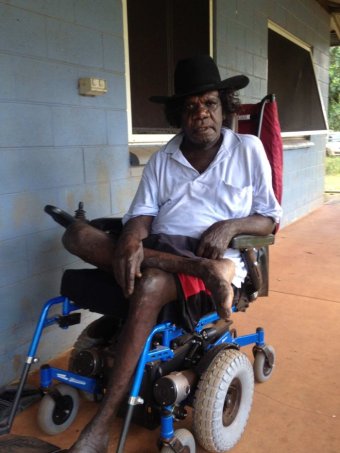
A small organisation supporting sufferers of an incurable hereditary disease has won a “landmark” case against the federal Indigenous Affairs Minister.
The Machado-Joseph Disease (MJD) Foundation challenged senator Nigel Scullion’s decision to overturn a $10 million grant to the organisation to help sufferers and their families.
The foundation said the grant was originally approved to allow the foundation to expand its services to sufferers beyond Groote Eylandt in the Gulf of Carpentaria, where the disease was first diagnosed in 1995.
The money was granted from the Aboriginals Benefit Account (ABA) and approved by former Indigenous affairs minister Jenny Macklin.
The Federal Court in Sydney ruled the Minister did not have the power to overturn that decision.
“Obviously we are very heartened by the court’s decision in this instance,” MJD Foundation chairperson Neil Westbury said.
“It’s the first time a challenge of this nature has been brought in respect to the overturning of a ministerial direction in relation to the Aboriginals Benefit Account.
“So it’s an important landmark judgement.
“It’s all fundamentally about the needs of people living with this terrible disease.”
Mr Westbury said Justice Geoffrey Flick had encouraged the organisation and Commonwealth to reach an agreement on proceeding with the grant.
“It’s up to the Commonwealth whether they will appeal the decision but we’re hopeful in this instance that the Commonwealth will choose to come to an agreement with the foundation,” he said.
Senator Scullion had previously said the grant was an “inappropriate” use of ABA funding.
He instead offered the organisation $500,000 per year for three years.
Senator Scullion told the ABC in a statement that the Government would review the details of the court’s decision.
“I will not be commenting until the Government has had time to consider its position,” he said.
The foundation said the number of people at risk of getting the disease has increased from 243 to 624 since the organisation started in 2008.
It said it expected the number to climb as more people developed the disease and the foundation engaged with more communities across the NT.
The organisation said the $10 million would be invested in perpetuity.
